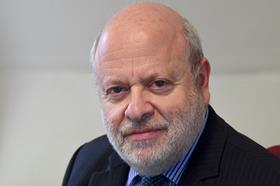
I hope that someone somewhere is writing a history of those UK nationals who remain living in the EU after the UK’s decision to leave, examining why they stayed, how they feel about the experience, and whether they are prospering.
The window for interviewing the wide range of people within this group will not last that long. Some will have already decided to go home, for financial or family reasons. Others may well integrate into local societies, leaving the UK behind them forever and giving their children English surnames, or at least a British heritage, which will be explained down the generations. Yet others will be in between, finishing their working lives in an EU Member State before retiring back to the UK.
A comparison can be made with those left behind in India after independence, memorably captured in Paul Scott’s novel ‘Staying on’. In the present case, Britain has left the EU empire of which it was a part, leaving its citizens behind with fewer rights and divided loyalties. I hope the outcome will not be as sad as Paul Scott described in India.
I am reminded of this bit of history because the Council of Bars and Law Societies of Europe (CCBE) has just published its latest annual statistics. Since the figures cover 2020, lawyers from the UK – almost exclusively English solicitors – still appear in the various columns, given that the UK finally left the EU only at the end of 2020. As a result, we have a pretty good picture of how many solicitors continue to work in most Member States (most, because as with all questionnaires, some Member States have not replied and others have not given full information). This may be the last year that the UK figures are given, in view of our recent ex-membership.
Historians can use these statistics for an indication of the numbers of lawyers whose EU lives were directly changed by Brexit. I hope that one or more historians will be interviewing the group to gain an idea of how the experience touched them, and how they now feel about the EU, the UK and their own futures. Maybe a budding Paul Scott will choose a solicitor as the subject for a new version of ‘Staying on’.
Before giving the figures, there need to be explanations.
First, Ireland (Law Society), France and Spain did not give figures, and they are likely to contain among the highest numbers - although most of the thousands of English solicitors who registered with the Law Society of Ireland have no intention of practising in Ireland, and so their exclusion may not be so significant from the perspective of this article.
Second, not all those listed as working in the EU under their UK home title will necessarily be UK citizens, although I think it is safe to assume that most are.
Third, as I wrote above, the figures given are almost always for the UK as a whole, which contains three jurisdictions and six legal professions. But I am sure that the overwhelming majority will be solicitors from England and Wales.
Finally, there will be UK lawyers who will not recorded in the figures: for instance, solicitors working for the European institutions, or who are working in-house in those countries where in-house lawyers are not registered with the Bar, or those who do not need practising certificates for the kind of work that they do, or who have fully integrated and left their home titles behind.
Having got all that out of the way, here are where the largest numbers continue to work: Germany (181), Belgium (123), Netherlands (25), Czech Republic and Cyprus (18), Luxembourg (16) and Austria, Denmark and Romania (12). Nearly all the other Member States recorded some UK lawyers working there, but in numbers small than 12. Therefore, of those recorded, there are about 500 British lawyers working in the EU, which should be roughly doubled to around 1,000 to take account of the important Member States missing (excluding the anomalous Irish figures).
The Law Society speaks to these solicitors about practice rights, to help negotiate a better practice environment with their local bars. The history of global practice rights for lawyers has been one of incremental improvements as globalisation increases. Here is an example of rights being removed and the process reversed. The experiences of those affected should be recorded for future use, in case it happens again, and, regardless, for general interest.
Overall, just as we are interested in the history of those who chose to stay behind in the colonies after independence, or, going further back, of the religious exiles in Tudor times, so – for all the significant differences in historical circumstances between those instances and this – we should be interested in the history of those staying on in the EU.






























